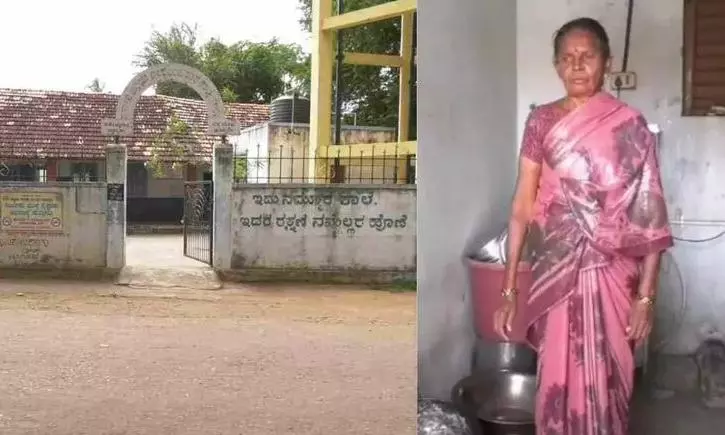
Karnataka: Dalit women continue to face discrimination in anganwadis, rural schools
Incidents where parents refuse to send their children to anganwadis and schools because Dalit women have been appointed as staff continue to occur across state

Despite official mandates and constitutional protections, social discrimination remains deeply entrenched and enforced through coordinated community action and institutional neglect in rural Karnataka.
Especially vulnerable are Dalit women appointed in public service roles such as school cooks, anganwadi workers, and teachers.
Dalit cook’s appointment sparks boycott
Incidents where parents refuse to send their children to anganwadis and schools because Dalit women have been appointed as staff continue to occur across the state.
A shocking incident has come to light recently from Homma village in Chamarajanagar taluk, where parents transferred their children to another school after a Dalit woman was appointed to cook midday meals in a government school.
Also Read: Why Dalit lives don’t matter in a casteist India
In the academic year 2024–25, 22 students were enrolled in the school. Previously, there were two cooking staff members, including a Dalit woman. Due to a reduction in student strength, one cook was let go, and under the roster system, the Dalit woman, Nanjamma, was appointed.
Of the 22 students, 12 have already obtained transfer certificates, while nine others have applied for them, leaving only one student remaining in the school.
Parents cite poor quality of education
Allegations have been made that students started transferring to other schools following the appointment of a Dalit woman to cook the midday meals.
The Deputy Director of Public Instruction (DDPI) of the district has instructed the Chamarajanagar Taluk Education Officer to visit Homma village and submit a detailed report on the actual reason behind these transfers.
Also Read: 200 years of Channar Revolt: How Dalit women struggled for right to cover upper body
Parents have claimed they are transferring their children because of poor educational standards in the Homma Government School. Despite multiple protests demanding teacher replacements, the authorities took no concrete action, they allege.
Dalit anganwadi helper denied entry
Another case in point is that of Hatyal village in Basavakalyan taluk, Bidar. Milana Bai, a Dalit woman, was appointed as an anganwadi helper there in June 2021.
However, Maratha and other upper-caste villagers prevented her from entering the anganwadi. Instead, they appointed a volunteer from their own Maratha community to handle cooking and pressured Milana Bai to take a transfer to Sirgapur village, 10 km away.
Also Read: By Dalit women, for Dalit women: How rape victims in Gujarat are joining forces
Dalit teacher barred from anganwadi
A similar incident happened in Melekote village of Doddaballapur taluk.
A Dalit teacher named Anandamma, promoted as an anganwadi teacher, was transferred to Melekote in September 2022. However, for 10 months, villagers denied her entry into the centre. Only after intervention by officials she was allowed to perform her duties.
Anandamma had stated then, “Because I belong to the Scheduled Caste, the villagers are not allowing me to work in the anganwadi. I’ve tried several times to enter, but they stop me. I’ve been coming here for the past 10 months.”
Anganwadi teacher locks out Dalit assistant
In Koollooru Navagram under the Kodumangaluru Gram Panchayat, an anganwadi teacher locked out Dalit cooking assistant KA Shanta, refusing to allow her to report for duty.
The district’s Women and Child Welfare Department had officially appointed Shanta. The teacher, Kalavathi, not only locked the centre but also stayed off from duties. Officials later resolved the issue after visiting the village.
Also Read: Tamil Nadu: Dalit women panchayat presidents break glass ceiling, but the war still rages on
Barbed wire fence to keep out Dalit worker
In Nakkanahalli, Chikkaballapur taluk, after the retirement of a 40-year-serving anganwadi worker, Sita Mahalakshmi, the Women and Child Welfare Department appointed Mamatha, a Dalit, as per norms.
However, the upper-caste villagers reacted by erecting a barbed wire fence around the anganwadi building, preventing her entry. The authorities were informed, and after visiting the village and explaining the situation, they facilitated Mamatha’s return to work.
(This article first appeared in The Federal Karnataka)

